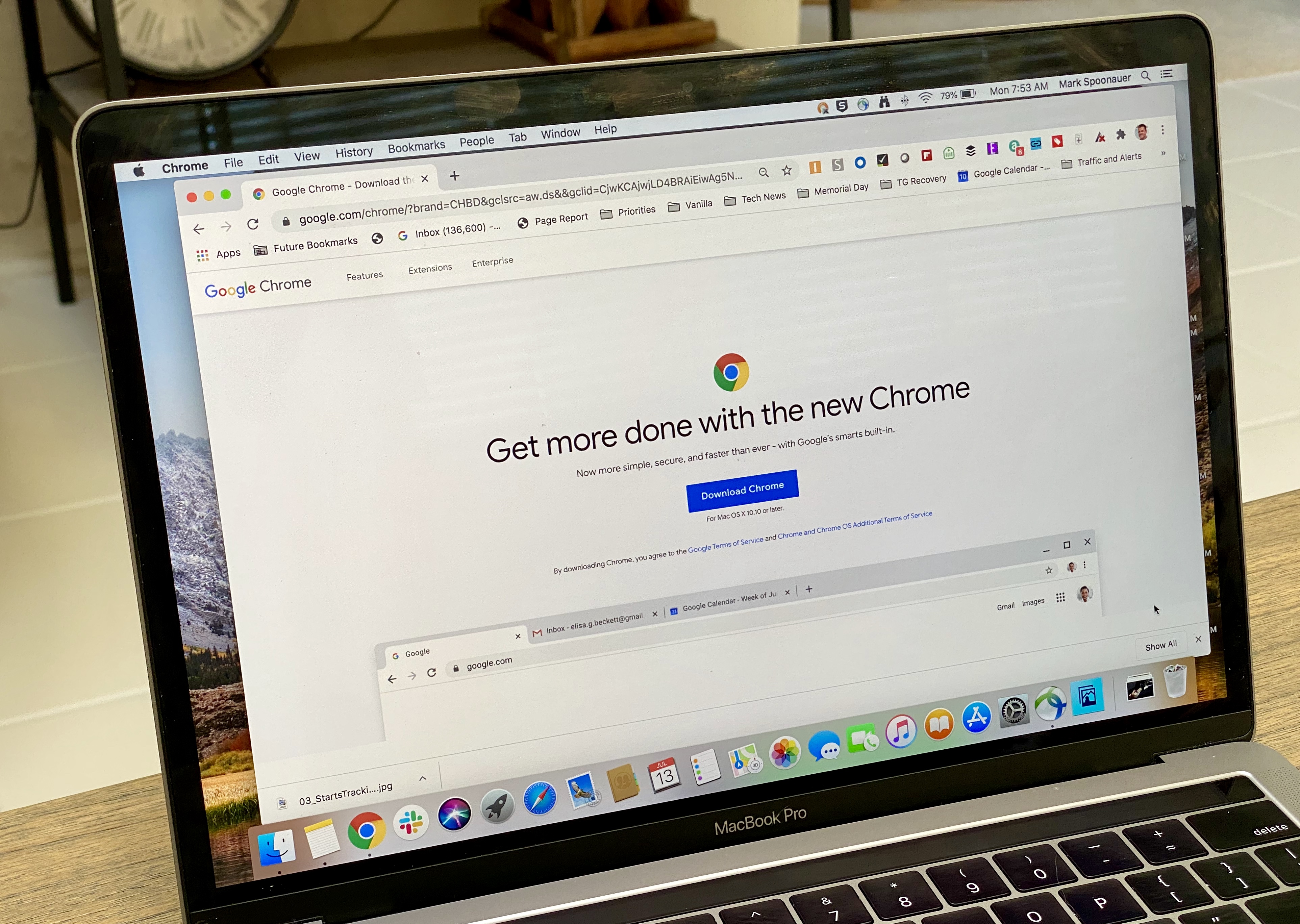Google Chrome reportedly destroys Mac performance — here’s how to fix it
Tired of Google Chrome slowing down your Mac? There's a solution

It looks like Google Chrome could be behind your Mac machine running slower than usual, thanks to it chewing up CPU resources. But fear not, there are fixes for the problem.
Frustrated Chrome user and software developer Loren Brichter discovered that the Chrome Keystone auto-update mechanism was the cause of the slowdown. And the developer created the Chrome is Bad website to explain the issue and detail how to fix it.
- Here's the guide to the best Chromebooks in 2020
- Plus: How to watch The Expanse season 5 — it's almost here
- Just in: Disenchantment Season 3 release date announced!
Brichter explained that despite doing looking at the masOS Activity Monitor on his MacBook Pro 16-inch, he couldn't see why his machine was slowing down. But when he dug into Chrome he found that the Keystone function was causing sluggish performance.
So it turns out that Google Chrome was making everything on my computer slow *even when it wasn’t running*, because it installs something called Keystone which is basically malware.I made a website because this shouldn’t happen:https://t.co/Twwxir5pwFDecember 12, 2020
After deleting Chrome and then removing all the Keystone related files on his MacBook Pro, Brichter noted that his Mac machine felt like "a brand new computer."
And Brichter has detailed a way to tackle this Google Chrome slowdown problem. Here's how to sort it.
Deleting Google Chrome and Keystone
If you’re experiencing issues with Chrome, clearing your cache, cookies and site data can be a good first step in helping improve your Mac’s performance. But if you're still experiencing slowdown, you'll want to remove Chrome and Keystone.
The bad news is that the process is not as straightforward as dragging the icon to the Bin. But here are some steps to follow to get rid of Chrome within macOS.
Sign up to get the BEST of Tom's Guide direct to your inbox.
Get instant access to breaking news, the hottest reviews, great deals and helpful tips.
- Go to your /Applications folder and drag Chrome to the Trash
- In the Finder click the Go menu (at the top of the screen), then click "Go to Folder...".
- Type in /Library and hit enter.
- Check the following folders: LaunchAgents, LaunchDaemons, Application Support, Caches, Preferences.
- Delete all the Google folders, and anything else that starts with com.google... and com.google.keystone...
- Go to "Go to Folder..." again.
- Type in ~/Library and hit enter. (Note the "~")
- Check the following folders: LaunchAgents, Application Support, Caches, Preferences.
- Delete all the Google folders, and anything else that starts with com.google... and com.google.keystone...
- Empty the Trash, and restart your computer.
As an alternative to Chrome, Loren suggests using Mac’s native browser Safari, though if you’re insisting on using a Chromium-based browser, you can also use Brave or Vivaldi.

Denise is a Life Reporter at Newsweek, covering everything lifestyle-related, including health, relationships, personal finance, beauty and more. She was formerly a news writer at Tom’s Guide, regularly producing stories on all things tech, gaming software/hardware, fitness, streaming, and more. Her published content ranges from short-form news articles to long-form pieces, including reviews, buying guides, how-tos, and features. When she's not playing horror games, she can be found exploring East London with her adorable puppy. She’s also a part-time piano enthusiast and regularly experiments in the kitchen.
-
smackheid I'm really disappointed to see that article posted on tom's guide! Loren Brichter's website isn't particularly well written. His claims are anecdotal and he provides no evidence or even detail about them. His recommendations are subjective, so I wouldn't take his advice.Reply
I don't know much about Keystone, except that it's open source, which means anyone can peak inside. This tends to mean that anything bad could and would have been spotted and fixed, in my opinion.
I'm not saying that Chrome hasn't or doesn't cause performance issues in certain scenarios/environments, but I do think that it isn't likely to be that many people (as in all software). In fairness Birchter's appears to be an edge case
Various counts put Chrome global market share at ~65%-71% of ~3.734bn-4.66bn unique users. Birchter claims that Keystone has been a thorn in the side of mac users since 2009. I would argue that the stats suggest he is in the minority.
I use chrome and have it configured to run apps in the background too so it can be quite resource hungry at times, however it's never been the source of any performance issues. Now it's my word against his.
Anyway tom's guide's almost blind replication of Birchter's article without any commentary or independent testing or verification of his claims has killed my opinion of it. I probably not rely on advice from here again. -
TheBuzzard Everyone's ecosystem is slightly different. I found the results of removing Chrome extremely effective in the performance of my 8 year old iMac with 8GB of memory and plenty of spare disk space. My wife's iMac (not as old) does not have the same latency issues, yet despite all the clean-up and minimization, the performance was horrendous, bordering on unusable. Thanks to this, I have a much better response to startup, browser searches and overall usability of the iMac.Reply
There is really nothing to lose in trying this. I exported/imported my passwords and bookmarks from Chrome to Safari. If this did not work, I would simply reinstall a fresh release. At this point, I am fine not going back to Chrome.
